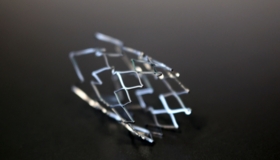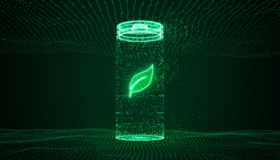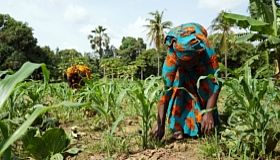
Ongoing projects
Please find here a selection of ongoing projects which BayFOR has succesfully supported in the funding application process or in which we are also participating as a partner organisation (please choose the filter option „With BayFOR“). The EU projects presented on this website have received funding from the European Commission.
You can find the project archive here.
-
Enterprise Europe Network
The EU advisory network “Enterprise Europe Network” (EEN) offers small and medium-sized enterprises (SMEs) advice and support on topics such as funding, research programs, public procurement, market penetration and the promotion of innovation at European level.
-
ARSINOE
Extreme weather events such as the floods in the Ahr Valley in the summer of 2021, but also recent droughts, have show that climate change has arrived in Europe. Adapting to its consequences is one of the most important challenges for the future. The EU project ARSINOE will develop innovative climate resilience strategies and tools.
-
CirCoFin
The EU project CirCoFin (Circular Construction Finance) aims to turn cities into active shapers of sustainable construction by activating private investors, innovative business models, clever financing strategies and new requirements for building regulations and public tenders.
-
CIRCOTRONIC
Nowadays we cannot imagine life without a smartphone or household appliances such as a vacuum cleaner or washing machine. The production of electrical and electronic equipment (EEE) is increasing rapidly. The production of rapidly increasing numbers of devices generates vast quantities of electronic waste and pollutes the environment, for e.g. by water and soil contamination. In addition, the raw materials contained in EEE are often extracted under socially and ecologically questionable conditions.
-
ClimTip
Rising global temperatures pose significant risks to humanity, including increasing weather extremes such as heat, droughts, heavy rainfall and more intense tropical storms, as well as rising sea levels and the loss of ecosystems. While most of these risks increase gradually with further warming, there are certain subsystems in the climate system that lead to drastic and irreversible changes when specific tipping points are crossed. The underlying mechanisms of these tipping elements and their interactions have not yet been sufficiently researched and are not yet fully understood. The EU project ClimTip aims to enhance our understanding of potential “Earth system Tipping Elements” (TEs).
-
DIAMONIQ
The continuing miniaturisation of components in the semiconductor industry is driving technological innovation. However, with increasing miniaturisation, it is becoming increasingly difficult to detect chip defects during the manufacturing process. Conventional methods are reaching their limits. As part of the EU Diamoniq project, Munich-based Quantum Diamonds GmbH is working on a novel microscopy technology to solve this problem.
-
EDIH DInO
In the EU project "Digital Innovation Ostbayern (DInO)", a team of networkers, researchers and start-up consultants is working on the task of supporting small and medium-sized enterprises (SMEs) and public institutions in the introduction of new digital concepts.
-
EURAS
In the battle to help their children suffering from RASopathies, parents from the Syngap Elternhilfe association initiated a network that is now active across Europe and funded by the European Union: EURAS. Coordinated by Universitätsklinikum Erlangen, EURAS links the perspective of those affected with that of those involved in research. Their aim is to understand the diseases better and find new, effective treatments for them.
-
FOODCoST
From the production and manufacture to the sale and consumption of food as well as the generation of waste – our food system is usually not sustainable. As a result of its significant impact on the environment and health, it incurs costs that so far have not been included in the pricing of individual products. The EU project FOODCoST aims to develop solutions to determine the true market value of a food product, taking sustainability criteria into account.From the production and manufacture to the sale and consumption of food as well as the generation of waste – our food system is usually not sustainable. As a result of its significant impact on the environment and health, it incurs costs that so far have not been included in the pricing of individual products. The EU project FOODCoST aims to develop solutions to determine the true market value of a food product, taking sustainability criteria into account.
-
INCiTiS-FOOD
The current food systems in African cities are facing major challenges: food and nutrition safety, health and environmental sustainability. Due to the population growth in African cities, under- and malnutrition in the population is on the rise, too. Supply of affordable animal-based protein, vegetables and fruits is insufficient. The African food system requires fundamental change in order to be able to feed the urban population. INCiTiS FOOD (INtegrated and Circular Technologies for Sustainable city region FOOD systems in Africa) therefore wants to develop scientifically sound, circular agricultural and food technologies for African cities.
-
InShaPe
In many industrial sectors, such as the automotive industry, aerospace and the energy sector, the demand for lightweight, high-strength and mechanically highly resilient special metallic components is increasing. Modern gas turbines, for example, require extremely stable and at the same time lightweight heat shields. An important manufacturing process for this is the powder bed-based additive manufacturing of metals. This method is technically referred to as powder bed fusion of metals using laser beam (PBF-LB/M).
-
KIDSNGROUP
People decide very early in their lives which groups they feel they belong to and which they do not. However, the origins of this behaviour have not been deeply researched to date. The EU project KIDSNGROUPS will investigate how groupthink arises in childhood and what consequences it has for society and the economy.
-
KISIK
Along with surgical departments, intensive care units (ICU) are the most important and expensive resource in a hospital. From an economic point of view, the ICU should ideally always be at full capacity. At the same time, the capacity of the unit is limited. The KISIK project aims to develop software to support rational decisions about optimal ICU occupancy.
-
NEBourhoods
With the EU project NEBourhoods, the City of Munich aims to transform the Neuperlach district into a sustainable urban innovation landscape and thus herald the future of modern urban renewal and development in the spirit of the New European Bauhaus.
-
RecyLIB
Accelerated by high fuel prices, more and more buyers are switching to hybrid or pure electric vehicles. As the number of traction batteries increases, the question of environmentally friendly manufacturing and recycling processes is also becoming louder. One key aspect is the function-preserving recycling of lithium-ion batteries. The "RecyLIB" project aims to set an example with new processes for battery electrode production, direct recycling and integrated functional material cycles.
-
SMHYLES
The recently launched EU project SMHYLES aims to develop innovative, sustainable, and safe salt- and/or water-based hybrid energy storage systems. These combine two storage technologies and their respective advantages: long duration capacity and high power density. The new low-CRM (critical raw materials) systems will also contribute to Europe’s energy independence.
-
STAAART
An abdominal aortic aneurysm is a pathological enlargement of the abdominal aorta that affects about one in twenty people in Western countries. If the abdominal aorta ruptures, it is fatal in 80 per cent of cases. Although most abdominal aortic aneurysms are detected at an early stage, there is currently no treatment that can halt the progression of the disease. As part of the EU project STAAART (SmarT Abdominal Aortic Aneurysm Treatment), Angiolutions GmbH is working on a new therapy for the treatment of early-stage abdominal aortic aneurysms.
-
TwinVECTOR
New battery technologies that are affordable and sustainable over the entire life cycle are crucial to achieve the goals of the European Green Deal. As part of the EU project TwinVECTOR, the centre of excellence at the Tomas Bata University (TBU) in Zlín, Czech Republic, is to be expanded technically and institutionally with the support of the consortium partners to enable multidisciplinary national and international project teams to network, create synergies and work together on the further development of battery energy storage technologies.
-
UPSCALE
Cereals such as corn and millet are among the main foods in East Africa. But crops are often threatened by various factors: lack of soil fertility, extended dry periods and pests such as the stemborer and the Striga weed often result in smallholder farmers in this region earning low yields and falling below the poverty line. One solution here is the Push-Pull cultivation method in the EU project UPSCALE.
-
WE-ACT
The effects of climate change and increasing water scarcity are giving rise to major challenges in allocating water resources across different competing sectors. Fair allocation is further hampered in cross-border catchment areas, where several countries and users have conflicting interests. However, sustainable cross-border water allocation is crucial, as 60% of the world’s freshwater resources are transboundary.






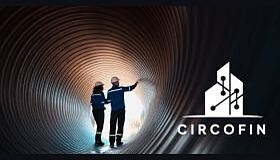


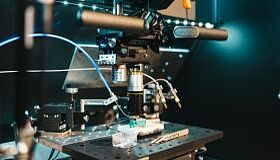
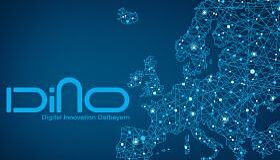
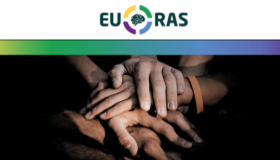
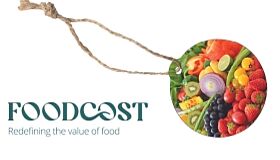
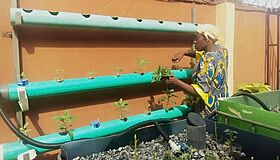
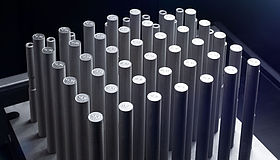

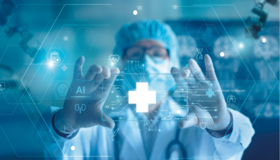
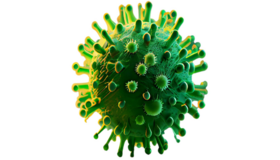

![[Translate to Englisch:] RecyLIB](/fileadmin/_processed_/e/5/csm_BayFOR-recylib-c_46d1e93e1c.png)
![[Translate to Englisch:] SMHYLES](/fileadmin/_processed_/5/4/csm_BayFOR-smhyles-c_e23e0ce14d.jpg)
